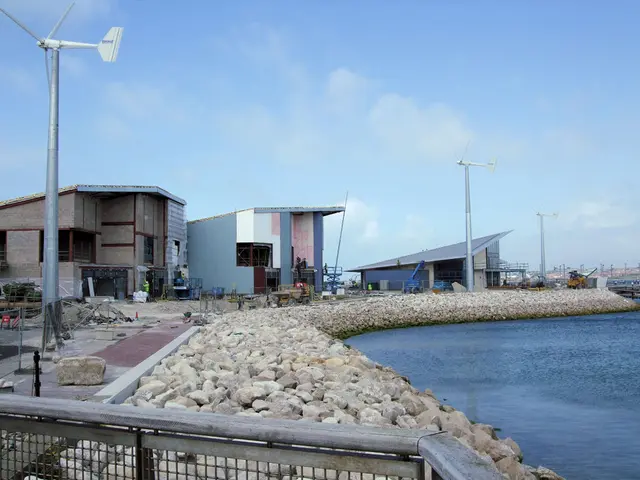A stark beginning for Friedrich Merz as German Chancellor
Addressing migration and economic stimulus: Priorities of the newly elected Merz administration
The infamous false start on Tuesday has delayed Friedrich Merz from commencing his new role as Federal Minister and visiting his official quarters. In an unexpected twist, Merz stumbled in the first round of voting and was eventually elected German Chancellor in the second round, pushing back the inauguration of all other German government members in Berlin.
The stain that won't fade: Merz and border control
Both Merz and Dobrindt are firm on their campaign promises, one being the tightening of border control to curb illegal immigration into Germany. With an anticipated delay on Merz's first day at work, Dobrindt held discussions with the German police president and the head of the migration office to outline future strategies.
According to these plans, migrants seeking asylum will be stopped at the border and returned to neighboring countries, such as Austria. This move has attracted criticism not only from Austria but also from Poland and the Netherlands, as it violates EU law.
Germany's land border stretches approximately 4,000 kilometers, making it challenging to control entirely. To strengthen the controls, the number of police at the borders will be doubled, and mobile surveillance units will be fortified. Additionally, officers will be required to work 12-hour shifts instead of the standard eight.
Germany's migration numbers have dropped significantly, but managing the extra financial burden for border control remains a question.
Austria's rebuff to Germany's move
The new German coalition government’s intentions are crystal clear: measures will be imposed to noticeably reduce illegal immigration.
Suspension of family reunification
Dobrindt also aims to discontinue Afghanistan's refugee intake programs and suspend family reunification for those with subsidiary protection, similar to Austria's plans.
The new government's primary focus is to revitalize the German economy, which is experiencing its third consecutive recession year due to President Trump's aggressive trade policies. The government plans to counter this with an "investment booster."
The German economy is set to benefit significantly from the recently approved massive billion-euro package. With this additional credit, the federal government can invest in the modernization of defense and infrastructure, although the advantages of these investments won't be realized until 2026, exhibiting a growth rate of 1.0 percent.
The young coalition government, composed of the Union and Social Democrats, has already announced extensive measures in recent weeks to stimulate the economy, including better depreciation options for companies, reduced energy costs and corporate taxes, more flexible labor laws, less bureaucracy, and decreased costs for renewable energy expansion.
Repeal of the Supply Chain Act
The repeal of the controversial Supply Chain Act is also planned. This act has been active for two and a half years and requires companies with at least 1,000 employees in Germany to consider human rights and environmental due diligence in their global supply chains.
The conservative-led Merz government’s influence is also apparent in the proposed repeal of another controversial measure: the agricultural diesel privilege for farmers is set to be reintroduced.
Sources:1. https://www.dw.com/en/germany-plans-to-introduce-strict-border-controls/a-609603102. https://www.europarl.europa.eu/at-work/en/article/germany-to-impose-strict-border-controls-on-may-6th3. https://www.spiegel.de/politik/deutschland/asyl-in-deutschland-koalitionsvertrag-zu-europas-grenzen-a-e14e6ec0-354f-4192-8caf-02e65a1a81e74. https://www.euractiv.com/section/germany/news/germany-plans-to-resume-repatriations-of-failed-asylum-seekers/5. https://www.welt.de/politik/deutschland/article204906961/Union-Ziele-Koalitionsvertrag-Kommentare-Zur-Sicherheitspolitik-Frank-Steffel.html
- The German Chancellor, Friedrich Merz, is facing financial challenges in managing the extra burden of stricter border control measures, aimed at reducing illegal immigration.
- The new German government's focus on border control and migration policies has met criticism from neighboring countries like Austria, Poland, and the Netherlands, as it potentially violates EU law.
- To strengthen border control, the German government plans to invest in the modernization of infrastructure, such as doubling the number of police at the borders and fortifying mobile surveillance units, despite facing economic hardships due to President Trump's aggressive trade policies.
- The Merz government has also announced plans to repeal legislation like the Supply Chain Act and the agricultural diesel privilege for farmers, demonstrating their influence in policy-and-legislation and politics.





